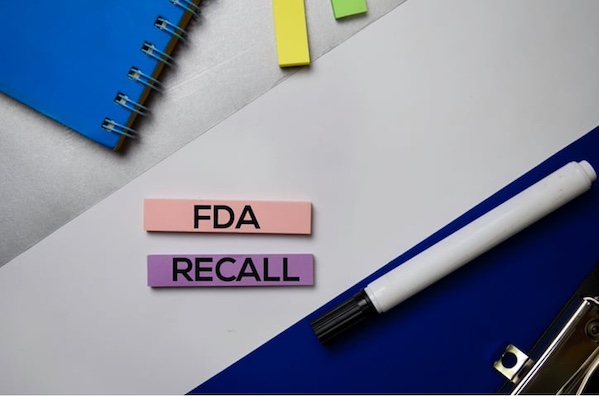Pfizer’s Hospira recall spree bleeds into 2024 with product pulls for multiple hospital drugs in shortage
December 29, 2023
Source: drugdu
 612
612

After a year plagued by recalls, Pfizer’s sterile injectables unit Hospira seems no closer to righting the ship over its glass-contamination woes. What’s more, the company’s latest product pulls threaten to intensify the ongoing shortages of several critical hospital drugs.
Shortly before the holiday, Pfizer’s Hospira announced two separate recalls over the potential presence of glass particulates in vials and syringes of certain meds.
In the case of injectable cancer medication bleomycin—of which Hospira is recalling one lot—a confirmed customer report alerted the company to the presence of glass particulates within a single vial, the company said in a notice posted on the FDA’s website.
The second recall, which covers three drugs—two strengths of injectable sodium bicarbonate, plus one lot of atropine sulfate injection—kicked off after the company flagged “the potential presence of glass particulate matter” during routine product inspection.
In both cases, Pfizer and Hospira said they hadn’t received any side effect or safety reports as of Dec. 21.
Particulate contamination can have serious safety implications, and for hospital drugs especially so. Hospira, for its part, warned of the potential for “serious adverse events” should patients receive medications tainted with glass.
Potential complications could include vein inflammation and the formulation of granulomas, or tiny clusters of white blood cells and tissue that arise as a reaction to infections and inflammation, irritants or foreign objects. Injecting a drug that contains glass particulates can also block vessels and lead to life-threatening blood clotting events, Hospira warned.
“The frequency and severity of these adverse events could vary depending upon a variety of factors including the size and number of particles in the drug product, patient comorbidities (such as age, compromised organ function), and presence or absence of vascular anomalies,” Hospira noted in its press release.
Thankfully, there are safeguards in place to prevent administration of a contaminated drug. Hospira pointed out that the labels for each drug covered in the recall contain statements directing healthcare professionals to visually inspect the products for particulate matter and discoloration prior to administration.
The single batch of injectable bleomycin is stored in ONCO-TAIN glass fliptop vials, Hospira explained. The drug is a mixture of cytotoxic glycopeptide antibiotics isolated from a strain of Streptomyces verticillus. Bleomycin is often used in conjunction with other chemotherapies and can be used to treat malignancies like non-Hodgkin’s lymphoma, testicular cancer, ovarian cancer and cervical cancer.
The single bleomycin batch comes one vial to a carton, with 112 vials stored in each case. The units were due to expire on June 30, 2024.
Injectable sodium bicarbonate, meanwhile, is indicated to treat a range of conditions, from metabolic acidosis—a potential complication of severe kidney disease—to uncontrolled diabetes, cardiac arrest and circulatory insufficiency due to shock or severe dehydration.
The medication can also be used to help reverse the effects of certain drugs like barbiturates or treat poisoning by salicylates or methyl alcohol, among other uses. The batches of sodium bicarbonate 4.2% and sodium bicarbonate 8.4% were expected to be good until Jan. 1, 2025, and March 1, 2025, respectively.
The final drug covered in the recall, atropine sulfate injection, is given parenterally for the temporary blockade of severe or life-threatening muscarinic effects—for example, as an antidote for organophosphorus or muscarinic mushroom poisoning. The medication can also help patients suffering from bradyasystolic cardiac arrest.
The single atropine lot was set to expire on Feb. 1, 2025.
Despite the frequency of Hospira recalls this past year—often over similar particulate concerns—Pfizer noted in the company’s press release that it places the “utmost importance on patient safety and product quality at every step in the manufacturing and supply chain process.”
Still, this is hardly Hospira’s first recall rodeo.
Late last December, Hospira recalled one lot of its antibiotic vancomycin hydrochloride at the 1.5-gram dose because of glass particles in vials.
Glass concerns cropped up again in October, when Hospira yanked a single batch of 4.2% sodium bicarbonate injection with an Aug. 2024 expiration date. The company also recalled a 1% lidocaine HCI injection lot with a June 2024 expiration date and a 2% lidocaine HCI injection lot with a July 2024 expiration date.
Hospira, which Pfizer purchased for $17 billion in 2015, has a history of recall problems. Back in 2017 and 2018, the company issued several recalls of injectables due to problems with particulates, microbial growth and a human hair found in a syringe of one lot of 25% dextrose injection for infants.
Hospira’s latest recalls come at an especially inopportune time. According to the FDA’s drug shortage database, myriad strengths of injectable sodium bicarbonate are in shortage right now. Hospira, for its part, credited the supply squeeze to shipping delays and increased demand.
Other companies caught up in the sodium bicarbonate shortfall include Exela, Amphastar and Fresenius Kabi.
Atropine sulfate injection is also in shortage from a range of drugmakers, according to the FDA.
https://www.pharma.com/pharma/pfizers-hospira-recall-spree-bleeds-2024-product-pulls-multiple-hospital-drugs-shortage
By editorRead more on
- Eli Lilly wins another victory! Regcizosumab submits its marketing application in China March 5, 2026
- Henlius’s potential best-in-class small molecule drug receives its first clinical trial approval March 5, 2026
- New anti-aging drug approved for clinical trials March 5, 2026
- First in the world and first in China, Yahong Pharmaceutical’s non-invasive treatment for cervical precancerous lesions, Cervita, has been approved March 5, 2026
- Its investee company’s PA3-17 injection has received clinical approval for a new indication, expanding the applicable population to children and adolescents March 5, 2026
your submission has already been received.
OK
Subscribe
Please enter a valid Email address!
Submit
The most relevant industry news & insight will be sent to you every two weeks.



